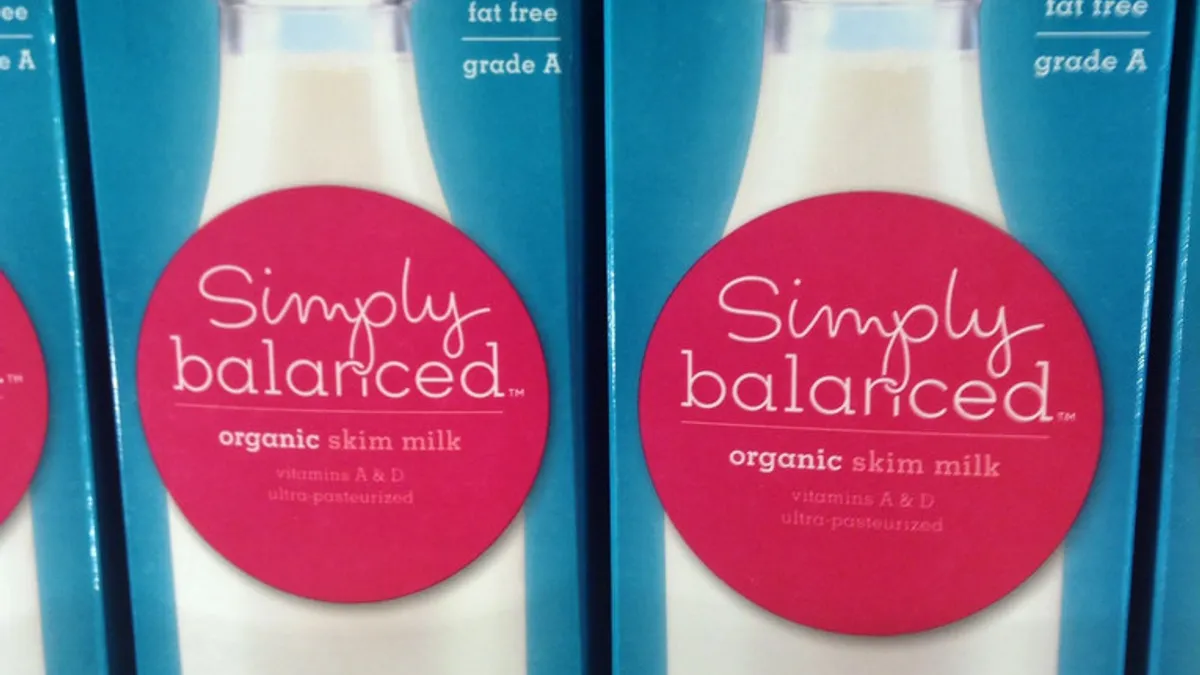Dive Brief:
- Kantar Retail grocery analyst Diana Sheehan predicts during the next five years private label sales will outperform the previous five, according to Store Brands. The main drivers, she noted, will be increasing demand from millennial shoppers and from retailers on the East and West coasts where there hasn't been as much investment in private labels as Midwestern stores.
- The expansion of store-brand heavy discounters Aldi and Lidl will contribute to wider adoption of private brands.
- Millennials, who are less loyal to traditional brands, also will fuel private label sales as their purchasing power increases, Sheehan said. "Millennials tend to be much more open about private label,” she said in the Store Brands article. “They don’t have the hang-ups, the legacy or past perception that older shoppers have in the private label space. So when you have retailers doing private label well and you have shoppers open to [those products], it’s a perfect situation to see a jump in growth.”
Dive Insight:
Private brands have grown during the past several years as retailers have figured out how to deliver products at the nexus of quality and affordability. Nowadays, grocers are stocking private label brands that rival national brands on taste, branding, packaging and marketing in just about every section of the store.
Kroger has invested heavily to develop its roster of private brands, making $20 billion across all categories in 2015. One of its fastest-growing performers, the natural and organic brand Simple Truth, also raked in $1.5 billion in 2015. Southeastern Grocers recently introduced a three-tiered lineup of store brands that range from everyday products to premium items. The chain, which owns Bi-Lo, Fresco Y Mas, Harveys and Winn Dixie, tested and reformulated more than 2,000 of its private label products as part of the initiative.
These notable examples will continue to drive sales, and will no doubt be joined by new entries in the coming years. Traditional grocers in particular see private label as a way to distinguish themselves in a crowded marketplace.
As Sheehan noted, millennials, who tend to be more enthusiastic about emerging brands than established ones, stand to grow sales more than any other demographic. As the success of Trader Joe’s shows, they’re not just looking for quality, but for unique flavor profiles as well.
The expansion of hard discounters Aldi and Lidl should also drive private label innovations, particularly on the East Coast, where the two chains will overlap. With so many specialty companies and retailers based on the East and West coasts, grocers in these areas have been slow to adopt private label innovations. But that’s changing as supermarkets discover the possibilities store brands hold.
The success of Aldi and Lidl, both of which offer predominantly private label products, also could play a big role in determining private label’s future. Could the runaway success of both companies entail a future where store brands make up the majority of products at most retailers? Only time will tell.









